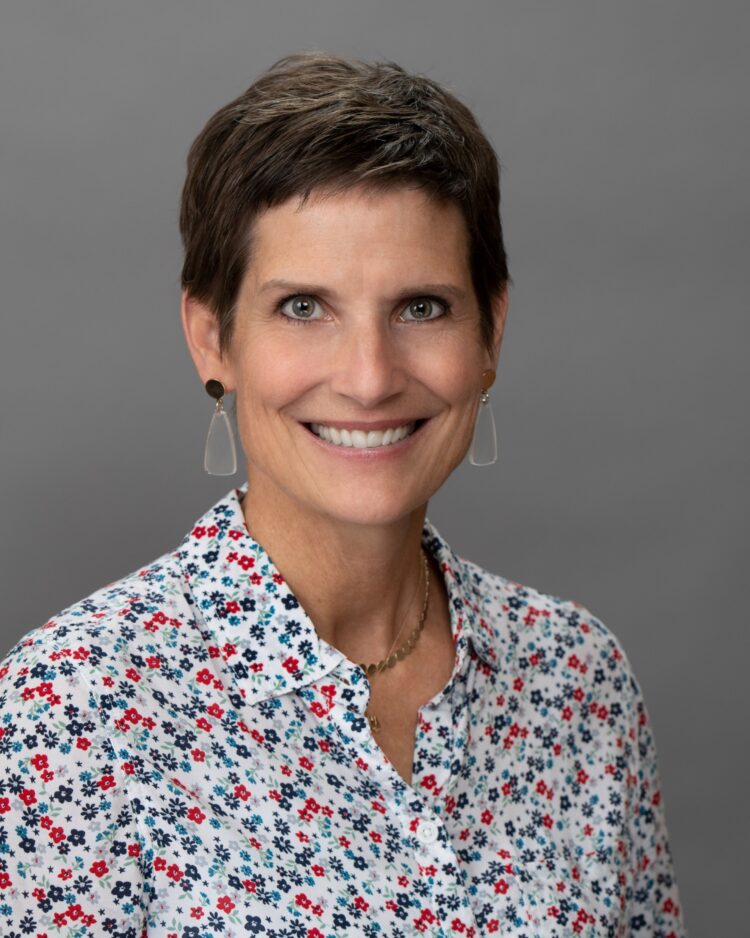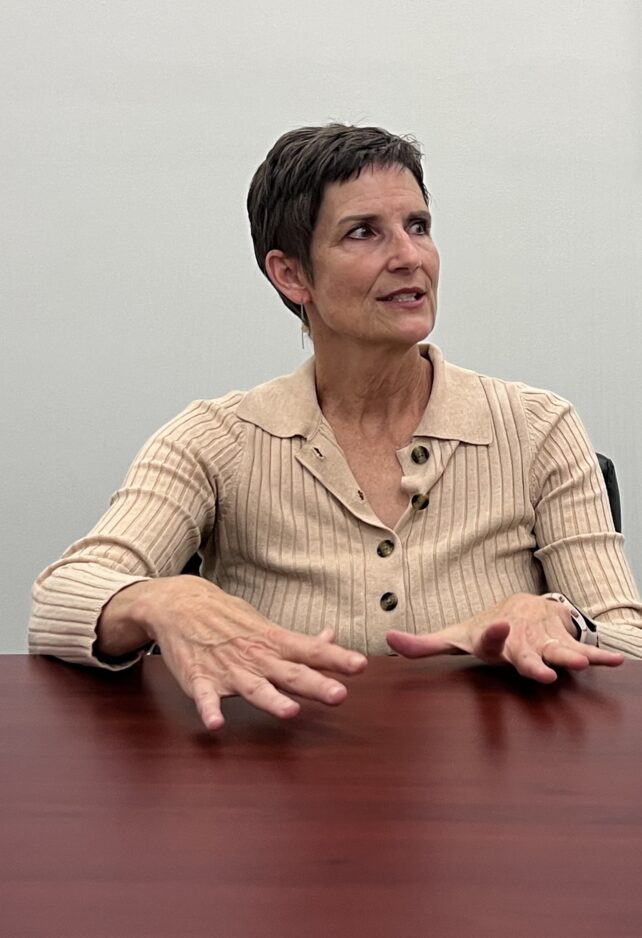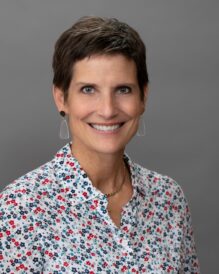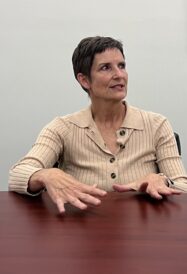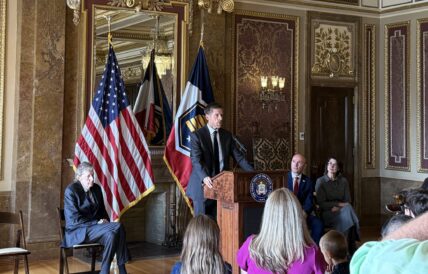Provo mayoral candidate Marsha Judkins shares her vision for the city
- Provo mayoral candidate Marsha Judkins is pictured in an undated photo.
- Provo mayoral candidate Marsha Judkins talks to the editorial board at the Daily Herald in Provo on Tuesday, Oct. 14, 2025.
As a quantitative reasoning professor at Utah Valley University, Marsha Judkins believes the best way to tackle problems is to look at the data and find evidence-based solutions.
It’s a formula the west Provo resident and former Utah state representative said she would use to improve the city if she were elected mayor of Provo in the Nov. 4 municipal general election.
“I am running because I really want to make Provo better,” Judkins said. “I think that we are doing well in some areas, but we could be so much better in others. And there are challenges that I feel aren’t being addressed. And so in the budget, in housing, in transparency, in transportation, in a lot of these areas, I want the opportunity to bring vision and fresh ideas and create a strategic plan that will move us forward.”
Judkins sat down for an interview with the Daily Herald to discuss a variety of city issues. This is the first of two stories recapping the conversation.
Increasing sales tax revenue
When asked about the issue in Provo that needs to be addressed, Judkins brought up the city’s business environment.
She argued that although the city has higher sales tax revenue than it did 10 years ago, sales tax revenue is declining when indexed against inflation.
Judkins said many major projects the city has developed have come from state or federal money, but that federal money is now being cut, placing the burden on the state or the city.
She referenced federal funding that supported the Utah Department of Environmental Quality going away and said, in response, the state gave the DEQ the ability to collect fees from cities to test municipal water.
“That’s an approximately $200,000 amount that the city is going to have to add into the budget,” Judkins said. “That’s just an example of the strains that are going to be put on our budget as other sources of funding potentially dry up.”
Her solution to increase sales tax revenue would be to make it easier to start businesses in Provo.
“If you talk to people who are actually trying to open a business here, or who have tried in the past, it’s a really daunting prospect,” she said. “There’s a lot of bureaucracy and red tape we have, and I would like to see us more proactively address that and make it easier for businesses to open here and then support them when they’re here.”
In accordance with her plan, Judkins wants to reassess the master plan and determine places where the city can zone for retail services, such as the west and southeast areas of the city. She referenced the Epic Sports Park as a place that needs nearby services.
“We don’t have hospitality like a hotel (near the park),” Judkins said. “We don’t have places where a family can just go get a snack or a drink.”
She also said she would create a vision for downtown that would better support business owners who want to be downtown.
Housing
Judkins believes the city needs to identify different options to improve affordability while still prioritizing agricultural land in west Provo and the canyons and hills in east Provo.
“We all have areas that we love, and that does limit what you’re going to develop,” she said. “But as long as we prioritize and plan for that, then we can look at the remaining areas and say, ‘How do we want to develop this to maximize the quality of life for everyone here?'”
Included in that conversation are residents’ children who want to stay in Provo, and Judkins suggested the city focus on building smaller starter homes that young people can afford to buy.
“There are things called pocket neighborhoods that are great options for some smaller homes that maybe have carports, but they all open into a combined shared space, and those are much more affordable,” she said.
The housing issues extend to Brigham Young University’s student population, many of whom are not permanent Provo residents yet are living in residential areas throughout the city.
Judkins said many students are living in single-family homes bought by investors, which can create tension with residents. She thinks the solution is to build more student housing south of campus.
“That will bring them out of the neighborhoods, I think, which will disincentivize investors, which will also open up more housing and hopefully cause less conflict, because we need students,” Judkins said.
Examining the transportation master plan
Judkins said a priority of hers would be to update the transportation master plan to help people get around the city better and make the streets safer.
She does not believe widening roads is always the solution, referencing master plan ideas to widen 820 North and 2200 North to five lanes, citing high costs and questioning whether widening lanes actually reduces traffic.
“We need a more human-centered approach to our city,” Judkins said. “If we widen that road, studies show that wider roads just induce traffic, so we can funnel more traffic into the center of Provo where we don’t have infrastructure, the roads or the capacity for all those cars.”
She said the city should plan smart ways to improve north-south and east-west access that do not add to congestion, specifically through public transportation.
One suggestion was improving the relationship with the Utah Transit Authority and building out on-demand transportation that was started in west Provo throughout the whole city.
“I don’t see any creative thinking and vision in what we’re doing with our transportation master plan. … I think let’s not destroy neighborhoods with more pavement until we’ve exhausted other possibilities,” Judkins said.

